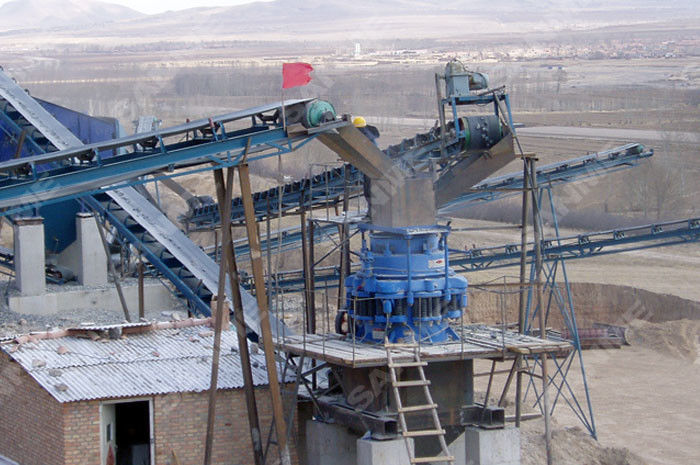
400Kw Metallurgy Feeding 460mm Cone Crusher Machine
2024-5-14
Cone crusher is a crushing machinery suitable for raw materials in metallurgy, construction, road construction, chemical and silicate industries. It has a high crushing ratio, high efficiency, low energy consumption, uniform product particle size, and is suitable for medium and fine crushing of various ores and rocks.
The working principle of a cone crusher is that the crushing chamber is in a conical shape, consisting of a fixed cone and a moving cone. The moving cone can swing along the axis direction of the fixed cone. The ore or rock to be crushed enters the crushing chamber through the feeding port and is gradually crushed and crushed by the squeezing force between the moving cone and the fixed cone. The crushed material is discharged through the discharge port at the bottom of the crushing chamber, completing the crushing process.
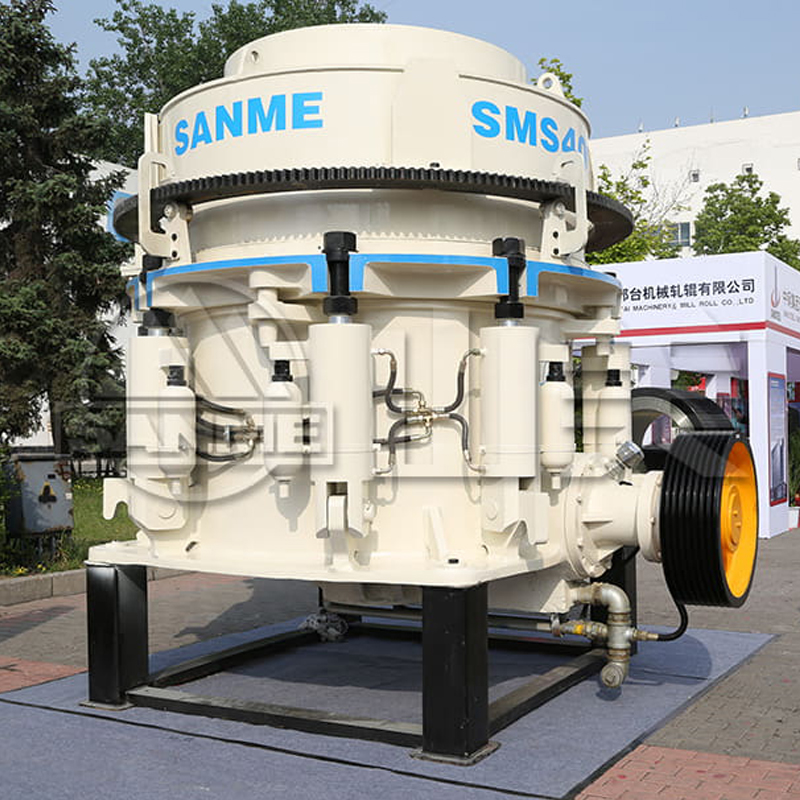
There are various models of cone crushers, such as SMS series, spring type, and SMG series. The models are mainly divided into four categories: spring cone crushers, rolling cone crushers, hydraulic cone crushers, and composite cone crushers. The cone crusher has the advantages of compact structure, high production efficiency, and easy maintenance, and is widely used in industries such as mining, construction, highways, and bridges.
The advantages and disadvantages of a cone crusher are as follows:
Advantages:
1、High crushing ratio and high production efficiency: The cone crusher can combine higher speed and stroke, significantly improving crushing efficiency, resulting in higher unit production.
2、Low consumption of vulnerable parts and low operating costs: The equipment has a reasonable structure, advanced crushing technology, reliable operation, and low operating costs. At the same time, the components of the crusher are equipped with wear-resistant protection, which can effectively reduce maintenance costs and improve the service life of the product.
3、Multiple crushing chamber types, flexible application, and strong adaptability: The cone crusher can achieve the transformation from ultra coarse chamber type to ultra-fine chamber type by changing the crushing chamber shape and the fixed and moving cone lining plates, adapting to a wide range of product particle size requirements.
4、High degree of automation and reduced downtime: The crusher has hydraulic adjustment discharge port and overload protection function, which improves the operation level of the equipment and shortens downtime, making maintenance more convenient and operation simpler.
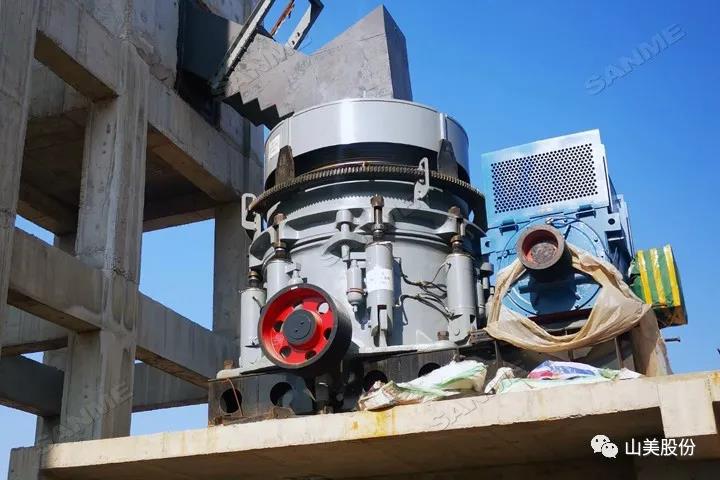
5、Thin oil lubrication, reliable and advanced: The cone crusher adopts a unique thin oil lubrication system design, effectively improving the service life of the product while also blocking dust.
Disadvantages:
1、Complex structure and high cost: The structure of the cone crusher is relatively complex, so its overall cost is also high.
2、Difficulty in maintenance: Due to the large weight of the machine, installation and maintenance are complex, and maintenance is also inconvenient.
3、Machine height increases construction costs: The higher body of the machine increases the construction costs of the factory and basic structures.
4、Not suitable for crushing damp and viscous ores: When processing such ores, cone crushers are prone to problems, such as excessive stone powder.
5、Insufficient fineness of finished products: Compared with professional sand making equipment, cone crushers still have shortcomings in the fineness of finished products, which may not meet the requirements for producing multi specification machines.
6、The shape of the finished product particles is average: Although the principle of laminated crushing has the advantage of large crushing force, it may also bring the disadvantage of having more needle like substances.
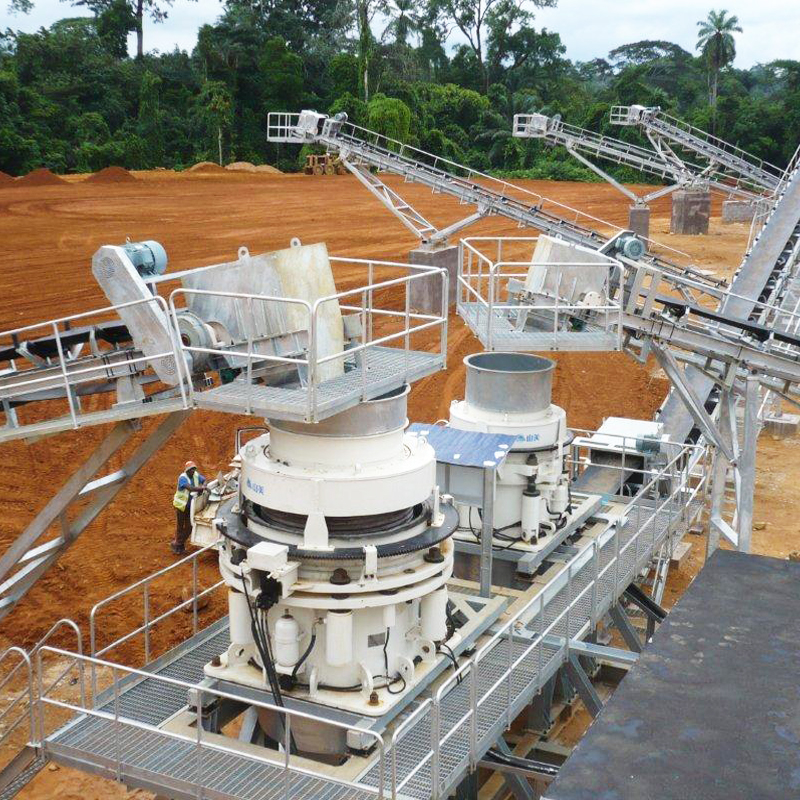
When choosing a cone crusher, multiple factors need to be considered comprehensively to ensure that the selected equipment can meet production needs. Here are some suggested steps and considerations:
1、Clarify production requirements:
Determine the type, hardness, and humidity characteristics of the material that needs to be crushed.
Assess the required crushing capacity (tons/hour) and production requirements.
Determine the required range of crushing particle size.
2、Choose the appropriate model and specifications:
According to production needs, select an appropriate model of cone crusher to ensure that the crushing capacity, feeding port size, and discharge port adjustment range meet the requirements.
Consider parameters such as equipment power, speed, and crushing chamber shape to ensure compatibility with material characteristics and production requirements.
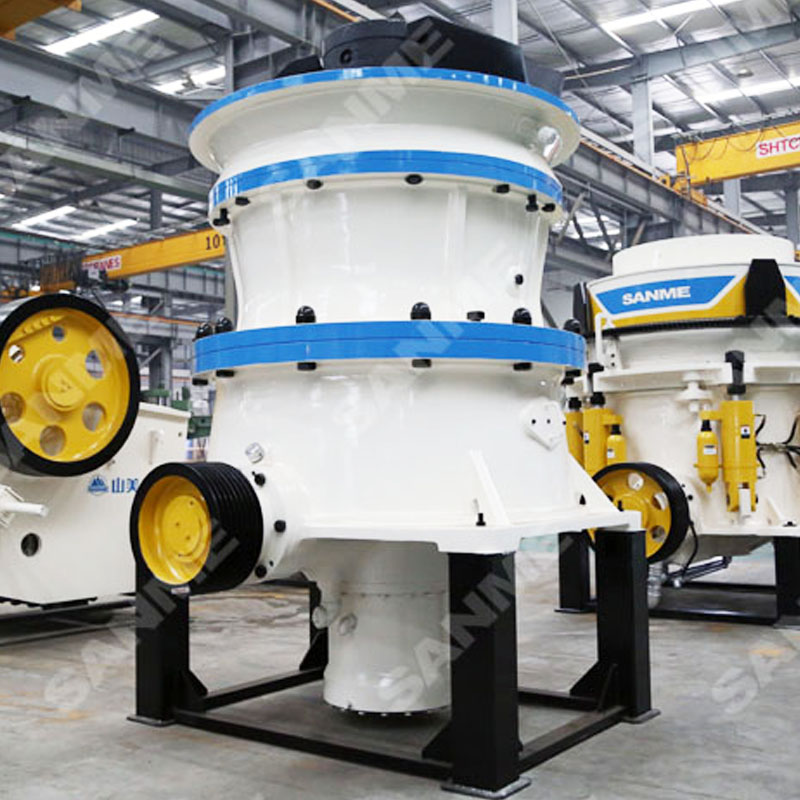
3、Assess equipment performance and quality:
Understand the manufacturing process and materials of the equipment to ensure its excellent performance and long service life.
Assess the crushing efficiency, energy consumption, and failure rate of the equipment, and select equipment with stable performance, reliability, and durability.
4、Considering the maintainability and ease of operation of the equipment:
Choose equipment with simple structure, easy maintenance and repair, to reduce maintenance costs and downtime.
Evaluate the operational convenience of the equipment, such as automation level, control system, and human-machine interaction interface, to ensure that operators can easily master and operate the equipment.
5、Reference user reviews and word-of-mouth:
Refer to relevant user reviews and word-of-mouth information to understand the actual usage and performance of the device.
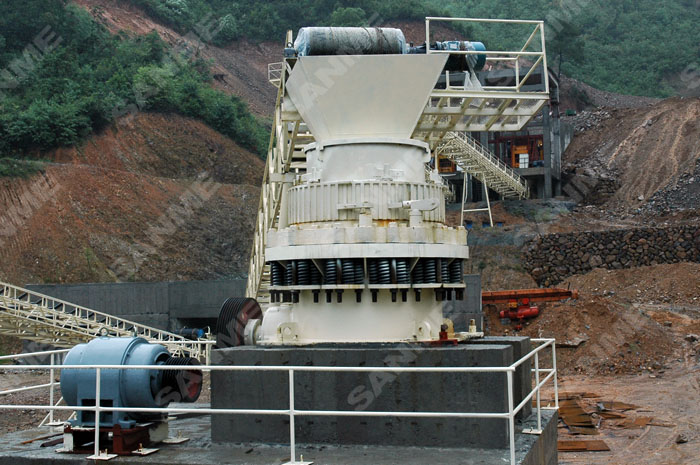
Consult professionals or peers in the industry to obtain more advice and experience sharing on the selection of cone crushers.
6、Consider after-sales service and support:
Choose suppliers with comprehensive after-sales service and technical support to ensure timely and professional assistance and support during use.
Understand the maintenance response time and accessory supply situation of suppliers to ensure timely repair and replacement of accessories in case of equipment failure.
7、Considering investment costs and economic benefits:
Choose a cost-effective cone crusher based on production needs and budget constraints.
Evaluate the investment return rate and service life of the equipment to ensure that the selected equipment can bring long-term economic benefits to the enterprise.
In summary, when choosing a cone crusher, it is necessary to comprehensively consider multiple factors such as production demand, equipment performance, maintainability, operational convenience, user evaluation, after-sales service, and economic benefits. By comprehensively evaluating and comparing different brands and models of cone crushers, choose the equipment that best suits the needs of your enterprise.